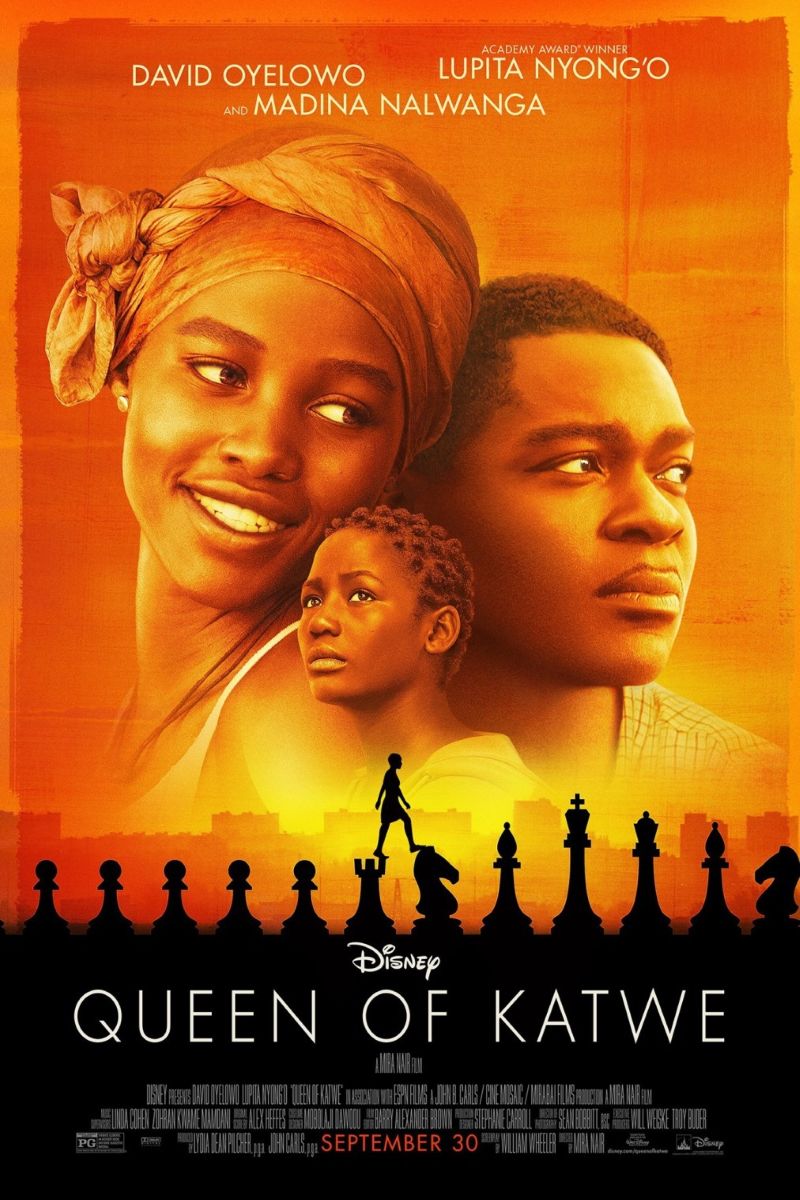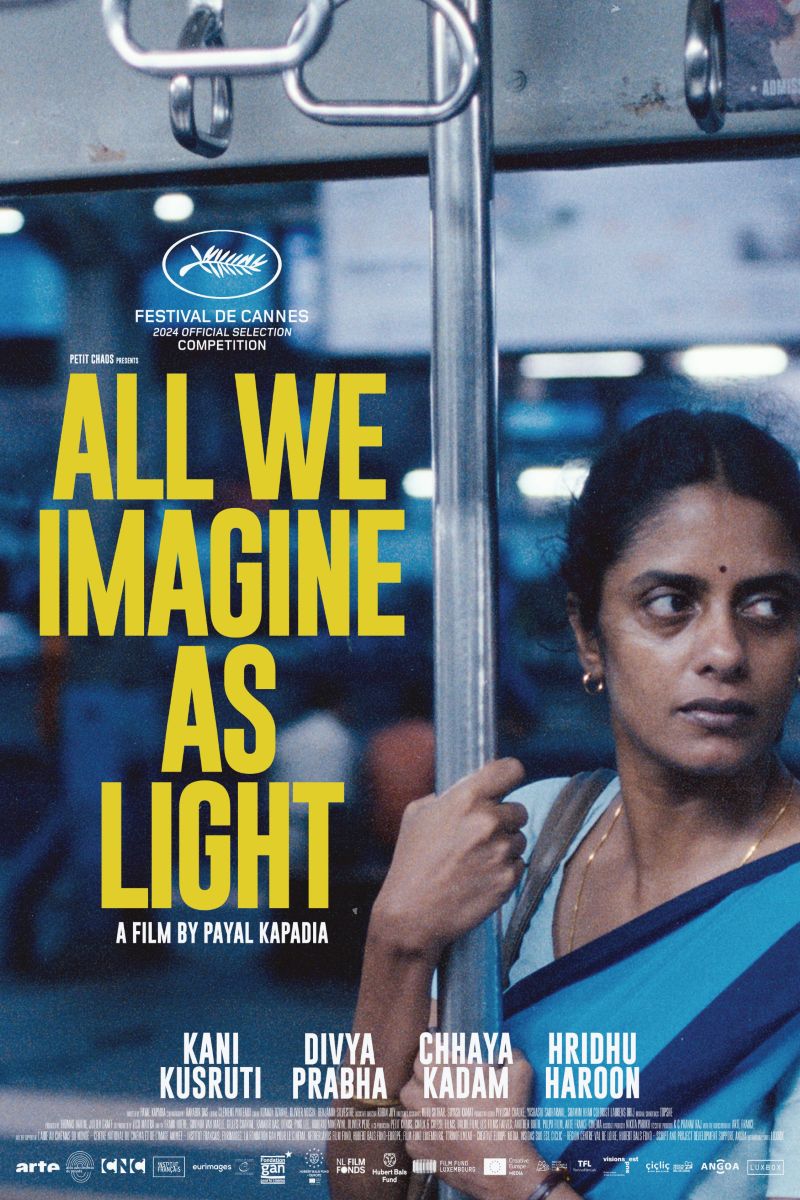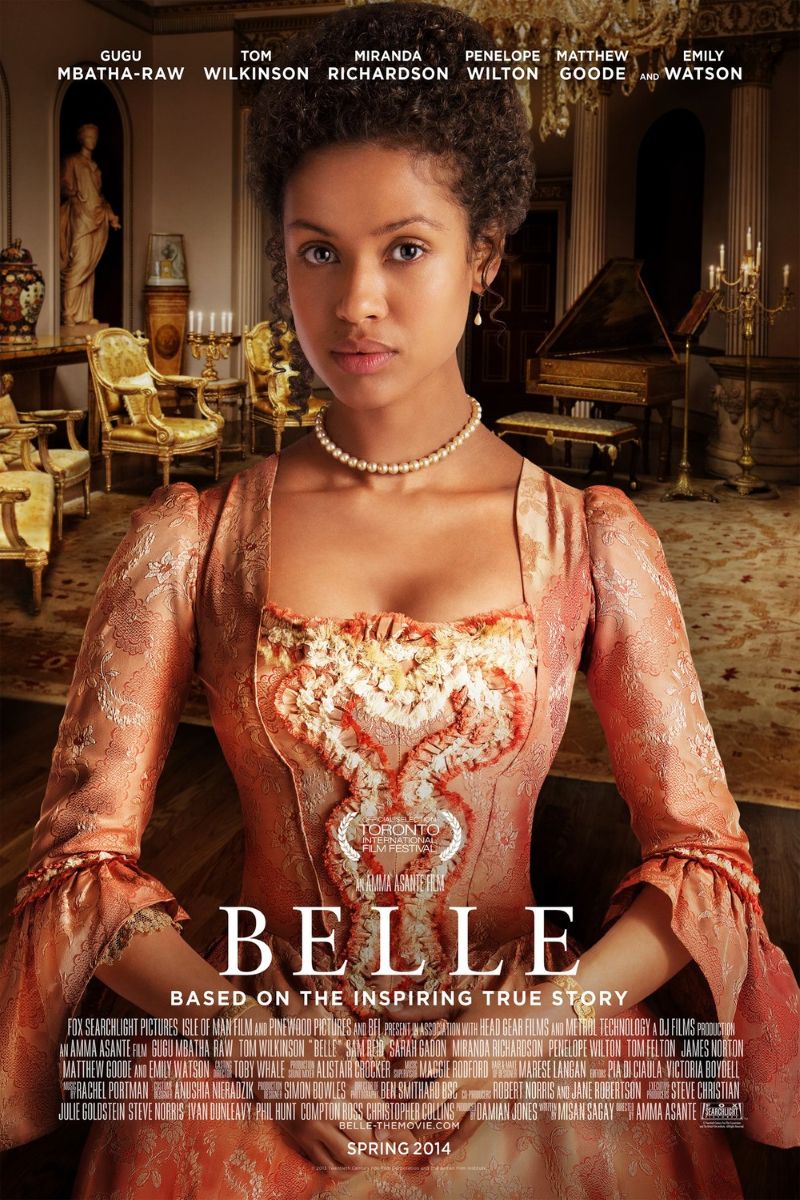
Queen of Katwe
Queen of Katwe
Disney has a way of making us feel like pawns in a game of "Let's See How Hard We Can Make Them Cry." But that's not the case with Mira Nair's feel-good drama about a Ugandan girl's path to chess champion, adapted from an ESPN the Magazine essay.
Cast
Related Topics
🎥 Film Analysis & Review
Mira Nair’s “Queen of Katwe” emerges as a revolutionary achievement in both Disney storytelling and African cinema, transforming what could have been a conventional underdog sports narrative into a nuanced exploration of female empowerment, educational opportunity, and cultural authenticity. This 2016 biographical drama about Ugandan chess prodigy Phiona Mutesi demonstrates how stories of triumph can honor complexity without sacrificing inspiration, creating space for African voices and experiences within mainstream Hollywood while celebrating the intellectual capabilities of young women from marginalized communities. Through its authentic portrayal of life in Uganda’s largest slum and its recognition of chess as a metaphor for strategic thinking and life possibilities, the film establishes new paradigms for representing African stories and female achievement.
Revolutionary Disney Storytelling and Cultural Authenticity
“Queen of Katwe” represents a groundbreaking departure from Disney’s traditional storytelling formulas, demonstrating how major studios can create commercially successful films that center non-Western experiences without exoticization or cultural appropriation. Nair’s direction brings the cultural specificity and authentic detail that her background in international cinema provides, ensuring that Uganda appears as a complex society rather than a simplified backdrop for Western audience consumption.
The film’s commitment to casting primarily African actors—including newcomer Madina Nalwanga as Phiona—demonstrates possibilities for authentic representation that extends beyond surface diversity to include cultural understanding and lived experience. This approach challenges Hollywood’s typical practice of casting established Western actors in international stories, instead creating opportunities for African talent while ensuring cultural credibility.
Nair’s integration of local languages, customs, and social dynamics creates immersive authenticity that educates audiences about Ugandan society while avoiding the anthropological distance that often characterizes Western films about African subjects. Her respectful approach to depicting poverty avoids both sentimentalization and exploitation, instead showing how economic limitation coexists with community strength, cultural richness, and individual resilience.
Chess as Metaphor for Female Intellectual Empowerment
The film’s use of chess as central metaphor creates powerful framework for exploring themes of strategic thinking, long-term planning, and intellectual achievement that transcend gender and cultural limitations. Chess represents democratic meritocracy where success depends on mental capability rather than physical strength, economic resources, or social connections, making it ideal vehicle for examining how talent can emerge from unexpected circumstances.
Phiona’s rapid mastery of chess demonstrates how intellectual gifts can transcend educational disadvantage when provided with appropriate encouragement and opportunity. Her strategic thinking on the chessboard parallels the life planning and decision-making skills necessary for escaping poverty and achieving social mobility, suggesting that intellectual development serves practical as well as recreational purposes.
The film’s treatment of chess competitions reveals how international tournament play can provide exposure to different cultures and opportunities while maintaining connection to community and family roots. Phiona’s success represents not individual escape from her circumstances but collective pride and inspiration for others facing similar challenges.
Challenging Stereotypes About African Women and Girls
“Queen of Katwe” systematically challenges Western stereotypes about African women and girls by presenting Phiona as intellectually gifted, strategically minded, and capable of competing successfully on international stages. The film demonstrates how poverty and limited educational access mask rather than eliminate intellectual potential, suggesting that talent exists everywhere but opportunity remains unevenly distributed.
The portrayal of Phiona’s mother Harriet, played by Lupita Nyong’o, provides crucial counterpoint to stereotypical representations of African motherhood by showing how maternal love and sacrifice operate within specific economic and social constraints. Harriet’s skepticism about Phiona’s chess involvement reflects realistic concerns about balancing immediate survival needs against uncertain long-term opportunities rather than simple resistance to her daughter’s advancement.
The film’s female characters demonstrate diverse approaches to navigating poverty and limited opportunities, from Phiona’s intellectual pursuits to her sister’s more conventional choices, showing how women make different strategic decisions based on individual circumstances and preferences rather than uniform cultural limitations.
Economic Realities and Educational Access
The film’s honest treatment of poverty in Katwe reveals how economic constraints shape daily decisions and long-term planning in ways that affect educational access and personal development. Phiona’s family’s struggles with rent, food security, and basic necessities provide context for understanding how survival concerns can conflict with educational investments that might provide future benefits.
The chess program’s provision of meals alongside instruction demonstrates how successful educational interventions must address immediate physical needs while developing intellectual capabilities. This approach recognizes that hungry children cannot focus on learning regardless of their innate abilities or motivation, making food security a prerequisite for educational achievement rather than a luxury.
The film shows how economic mobility requires not just individual effort but community support, mentorship, and institutional resources that enable talented individuals to develop and demonstrate their capabilities. Phiona’s success emerges from the intersection of personal determination, family support, community programs, and international opportunities that create pathways previously unavailable to young women in her circumstances.
Community Development and Social Change
The chess program led by Robert Katende, played by David Oyelowo, represents models for community development that build on local talent and initiative rather than imposing external solutions or values. Katende’s approach demonstrates how effective mentorship combines high expectations with emotional support, challenging young people to exceed their perceived limitations while providing practical assistance with obstacles.
The film illustrates how individual achievement can create ripple effects that benefit entire communities, as Phiona’s success inspires other young people while bringing positive attention and resources to Katwe. Her accomplishments suggest possibilities for social change that emerge from within communities rather than being imposed from outside.
The relationship between the chess program and the local church reveals how community institutions can serve multiple functions, providing not just spiritual guidance but educational opportunity, social services, and community gathering space. This integration demonstrates how successful community development works through existing social networks rather than creating parallel structures.
Mother-Daughter Relationships and Generational Change
The complex relationship between Phiona and her mother Harriet illustrates how generational change occurs within families navigating rapid social transformation. Harriet’s initial resistance to Phiona’s chess involvement reflects both practical concerns about lost income and deeper fears about her daughter moving beyond familiar social boundaries and family connections.
The film explores how maternal love can manifest through both protection and permission, as Harriet gradually recognizes that supporting Phiona’s ambitions requires accepting risks and uncertainties that challenge her own experiences and expectations. Their relationship demonstrates how family bonds can adapt to accommodate individual growth and changing opportunities.
Harriet’s own development throughout the film—from skeptical protector to proud supporter—illustrates how parents must sometimes overcome their own limitations and fears to enable their children’s advancement. Her journey suggests that social progress requires not just individual achievement but family and community willingness to embrace new possibilities.
Gender and Cultural Expectations
The film’s treatment of gender roles within Ugandan society reveals how cultural expectations about women’s capabilities and appropriate activities can be challenged through demonstrated excellence and community support. Phiona’s success in chess—traditionally a male-dominated activity—provides evidence that intellectual abilities transcend gender limitations when given opportunity for development.
The contrast between Phiona’s pursuits and her sister’s more conventional path illustrates how different women make different choices about balancing cultural expectations with personal aspirations. The film avoids judging either approach, instead showing how individual circumstances and preferences influence decisions about education, career, and family.
The presence of other girls in the chess program demonstrates that Phiona’s interest and ability are not unique, suggesting that many young women possess untapped intellectual potential that could be developed through appropriate programs and encouragement.
International Recognition and Cultural Exchange
Phiona’s participation in international chess tournaments provides framework for exploring how global recognition can coexist with local identity and community connection. Her travels expose her to different cultures and opportunities while reinforcing rather than diminishing her commitment to family and community in Katwe.
The film shows how international success can create opportunities for cultural exchange that benefits both individual achievement and broader understanding between different societies. Phiona’s story demonstrates how African excellence can gain global recognition without requiring cultural assimilation or abandonment of roots.
The chess tournaments serve as democratizing spaces where talent transcends national boundaries, economic circumstances, and cultural differences, suggesting possibilities for meritocratic achievement that operates across traditional barriers and limitations.
Performance and Authenticity
Madina Nalwanga’s debut performance as Phiona achieves remarkable authenticity through her natural understanding of the cultural context and genuine enthusiasm for chess that emerged during preparation for the role. Her portrayal avoids both artificial precocity and false naivety, instead creating a believable character whose intellectual growth occurs gradually through accumulated experience and confidence.
Lupita Nyong’o’s Harriet demonstrates the complexity of maternal love within economic constraint, showing how protective instincts must balance immediate survival concerns against uncertain future opportunities. Her performance reveals the internal conflict between wanting to shield children from disappointment and recognizing the need to support their aspirations.
David Oyelowo’s Robert Katende embodies the effective mentor who combines high expectations with emotional support, demonstrating how community leaders can create transformative opportunities through persistent commitment and genuine care for young people’s development.
Visual Storytelling and Environmental Context
Nair’s direction creates visual narrative that captures both the challenges and vitality of life in Katwe without resorting to poverty tourism or sentimental manipulation. Her cinematography reveals the community’s resourcefulness, creativity, and social connections while acknowledging the real constraints imposed by economic limitation and inadequate infrastructure.
The film’s production design creates authentic environment that serves narrative purposes while respecting the dignity and complexity of the setting. The visual contrast between Katwe and the international tournament venues illustrates economic disparities while suggesting that intellectual achievement can bridge different social worlds.
The integration of music, color, and local detail creates immersive atmosphere that educates audiences about Ugandan culture while maintaining focus on universal themes of family, ambition, and community support.
Contemporary Relevance and Educational Impact
“Queen of Katwe” continues to influence discussions about educational equity, international development, and the representation of African stories in global media. The film’s success demonstrates audience appetite for authentic cultural narratives that challenge stereotypes while maintaining entertainment value and emotional accessibility.
The film has been used in educational settings to explore themes of perseverance, intellectual development, and cultural understanding, providing positive role models for young people from diverse backgrounds. Academic research has documented the film’s impact on student motivation and educational aspirations, particularly among girls and students from marginalized communities.
The ongoing relevance of the film’s themes—educational access, gender equality, community development, and cultural authenticity—ensures its continued importance as discussions about global equity and opportunity evolve in response to changing social and economic conditions.
Conclusion: Intelligence Without Borders
“Queen of Katwe” achieves lasting impact through its demonstration that intellectual excellence transcends cultural boundaries, economic circumstances, and traditional limitations when provided with appropriate recognition and support. Mira Nair’s direction and the ensemble cast create a work that celebrates African achievement while addressing universal themes of family, community, and personal development.
The film’s greatest achievement lies in its expansion of possibilities for representing African stories and female achievement within mainstream Hollywood, proving that authentic cultural narratives can achieve commercial success while maintaining dignity and complexity. Phiona’s journey demonstrates that strategic thinking, determination, and community support can create opportunities for advancement even in challenging circumstances.
Through its combination of cultural authenticity, inspiring storytelling, and excellent performances, “Queen of Katwe” stands as testament to the ongoing relevance of stories about young women claiming their intellectual capabilities and pursuing excellence regardless of their starting circumstances. The film proves that when authentic voices tell their own stories with respect and artistic integrity, they create works that speak to universal human experiences while honoring specific cultural contexts and individual achievements.
🏆 Awards & Recognition
- • NAACP Image Award Outstanding Independent Motion Picture
- • Teen Choice Award Choice Movie Drama
- • Heartland Film Festival Crystal Heart Award
- • Palm Springs International Film Festival Rising Star Award (Madina Nalwanga)
⭐ Ratings & Links
Related Recommendations
Comments & Discussion
Discuss this video with other viewers
Join the Discussion
Discuss this video with other viewers
Loading comments...



